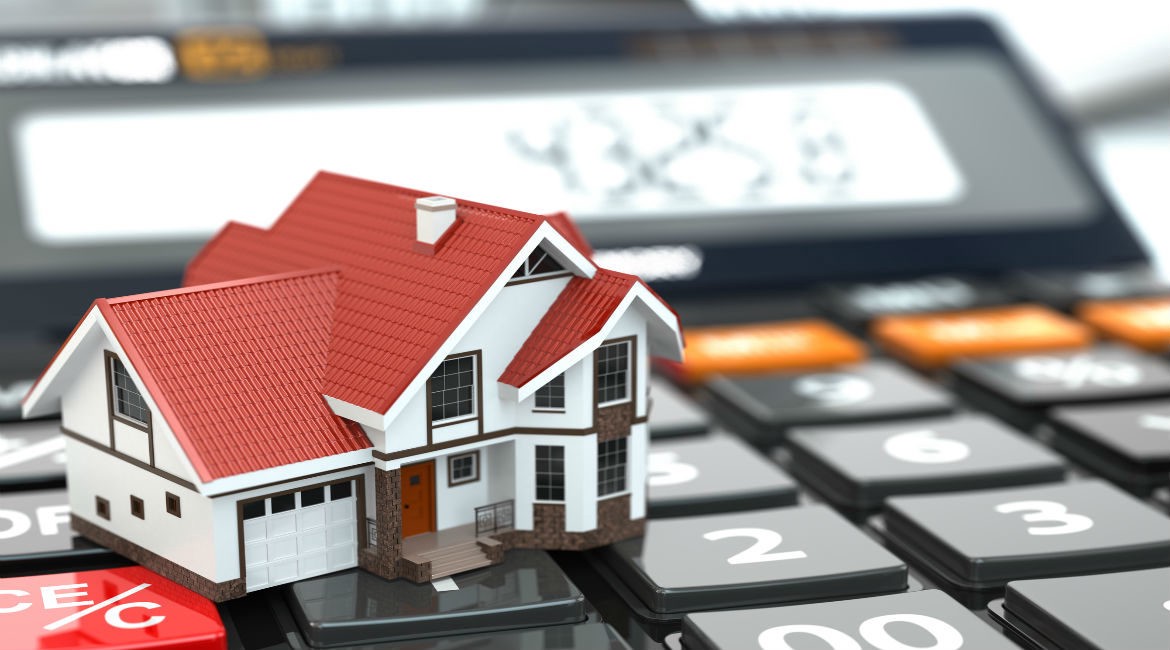Planning to buy a property? Know few things before you buy.
When You Should Buy A House?
Buying a home is everyone’s dream. Ever since we are born, we are spoon-fed into buying a house. I doubt if anyone has ever thought of living in a rented place or just keep moving all along.
Earlier, long waiting lines, more than 10 face times with the lenders, multi-folds of documents submission, and high-interest rates; made the whole buying process quite cumbersome and involved lots and lots of thinking beforehand. Now the interest rate has fallen to 3.5% making it seem as if anyone is suitable to buy. But remember that old time saying, think twice before buying into the easy way out.
Buying a house is not about age. The question here shouldn’t be when but who. Who are you? What is your position in life? It’s about the person you would have to become before buying a house. Many people buy when they are just 25, others might wait till they turn 40. Although, there are people who might just rent. There’s nothing wrong with living in a rented house.
Owning a house definitely has many financial security advantages but you should always think properly before taking such a step that might never stop affecting your life in some or another way. Ask yourself these 4 questions before going to buy a house.
1) How well are you financially?
And here I don’t mean that buying a house is something that only wealthier can afford. Instead, I mean, are you clear with all your debts? Student loans, credit card bills, and other loans. Debt is a symptom of a greater problem: not enough money. If you are forced to use a credit card because there seem to always be more months than money, do not buy a house.
2) Have you saved enough for a down payment?
So, yes that 3.5% we talked about earlier, seems easy to pay but its not just about the loan amount that you are paying when you buy a house there are other expenses too like the furniture to start with, have you included repairing and furnishing cost and the insurances and taxes. These costs will easily add thousands of dollars to your bottom line. There’s not much worse than buying your dream home and not having a cent to fix it up to fulfill your dream.
3) Are you ready to settle?
Here comes the most underrated question. People usually leave it out of their consideration. So, I will ask, how many jobs have you switched up till now? Is this the final city that you are ready to give into? No, you don’t have to answer me but consider answering yourself before settling down with a house. Home is a long-term investment. I recommend planning on staying in your home for at least five years. If you aren’t ready to commit to that length of time yet, it’s okay. Just don’t jump on the “I need to buy a house because everyone else is” bandwagon.
4) Can you fix your leaks?
I remember, one of my cousins bought this really beautiful house in the countryside but a few months after buying he started to have leakage issues making the mornings difficult to get with. These little surprises are a part of home ownership, and you should be prepared for them both financially and psychologically. When you are the owner of the house you either have to fix it yourself or have the resources to get it done.
So, are you mindful of the thought of buying a house? Can you answer yes to these questions? If so, then go ahead and get the house of your dreams, but if you’re anywhere doubtful about these cases then you should think twice before talking to the lender.

Can Mortgage Hurt Your Credit Score?
Getting a mortgage is a significant accomplishment for you and your credit. Building and maintaining the credit required to obtain a mortgage is a great start. Managing a mortgage responsibly indicates your capacity to handle various forms of credit, make on-time loan payments, and maintain a sizable, long-term account—all of which can gradually improve your credit score. However, taking out a mortgage might affect your credit temporarily until you prove the ability to pay back the loan.
Immediately after the mortgage, your credit score might create some difficulty to buy other loans. This happens due to the hard credit check that the lenders pull on you when you go for buying a mortgage. As a mortgage is a pinnacle of consumer credit, i.e., the largest loan that most consumers will ever have, therefore, your score goes down until you prove that you have the ability to pay back the loan—and that you will actually make the payments you promised.
To get ahead of this temporary downfall, one should be regular on their payment and try not to fall back on any of them. Do not sign up for any such services that say raise your credit score fast. Simply make your mortgage payments—and all other payments, for that matter—on time. As you prove that you’re a responsible borrower, your score will naturally rise.
The debt you incur to purchase a home is seen as responsible debt as long as you pay your mortgage on time each and every time. Additionally, avoid making any other significant purchases within six months of taking on a mortgage because doing so would probably cause your credit score to decline. Your credit score should quickly rise again if you have a history of responsibly paying your mortgage and other debts.
What Are Conventional Mortgage Loan Requirements In 2022?
Are you new to the home buying process and wondering what it takes to get approved for a home loan? Well today in this article, we are going to break down the conventional loan buying process requirements. So, let us first deal with the question of what is a conventional home loan. A conventional loan is a type of mortgage loan that is not insured or guaranteed by the government. Instead, the loan is backed by private lenders, and its insurance is usually paid by the borrower.

Conventional loans are much more common than government-backed financing. But what really is required to get this conventional mortgage loan?
Credit Score: It has always been a no-brainer that credit scores are the most factor in deciding your capability of buying a loan. For conventional loans, most lenders mark the score of 620 as the minimum requirement to get eligible for that loan. However, if you don’t qualify that criterion, it doesn’t mean that you won’t be able to buy a house but it means that you might have to pay a much higher interest rate. If you default, your credit scores will get hurt furthermore in this case.
Down payments: It’s possible for first-time home buyers to get a conventional mortgage with a down payment as low as 3%. However, it’s not just for first-timers, anyone can get 3% down as long as your lender allows it. But this type of low-down payment typically means you have to pay private mortgage insurance (PMI). Anything less than 20% will require PMI. PMI protects your mortgage investors in case you default on your loan. And if you have a lower credit score and you are paying at #% down then along with the PMI you will also have to pay high-rated interest. So it’s always better to pay a higher down payment as long as you can afford it.
Debt-income ratio: Debt-income ratio is the percentage of a consumer’s monthly gross income that goes towards paying debts. The minimum monthly payments on all of your obligations, such as credit cards, vehicle loans, and school loans, can be added together, and your DTI can be calculated by dividing the total by your gross monthly income. Your DTI must be 50% or below for the majority of conventional loans.
Loan Size: Your loan must be within the Fannie Mae and Freddie Mac loan restrictions in order to be considered a conforming conventional loan. The loan ceiling is adjusted yearly. The conforming loan maximum for a single-family residence in 2022 is $647,200. However, there are several exceptions. The maximum loan amount in Alaska, Hawaii, and other high-cost regions of the nation is $970,800.
The bottom line is, conventional loans generally offer lower costs than other loan types, and if you meet credit score requirements and want a down payment of as low as 3%, a conventional mortgage might be the best solution for you.

What Are The Different Types Of Mortgage One Can Get?
Are we deep-diving into the types of mortgages here? Well yes, there are many types of home loans. Each comes with different requirements, interest rates, and benefits. Here are some of the most common types you might hear about when you’re applying for a mortgage.
Among the two main categories – conforming and non-conforming loans, non-conforming loans involve government-backed mortgages, jumbo and non-prime mortgages.
Conventional Conforming Loans: A conventional loan is a type of mortgage loan that is not insured or guaranteed by the government. Instead, the loan is backed by private lenders, and its insurance is usually paid by the borrower. Conventional loans are much more common than government-backed financing.
You can get a conventional loan with a down payment of as little as 3% of the purchase price of the home. If you put down less than 20% for a conventional loan, you’ll usually be required to pay a monthly fee called private mortgage insurance, which protects your lender in case you default on your loan.
Non-conforming Loans: Due to the loan amount or underwriting requirements, Fannie Mae and Freddie Mac typically cannot sell or buy nonconforming loans. The most typical kind of nonconforming loan is a jumbo loan. Because the loan amounts frequently exceed conforming lending limitations, they are known as jumbo loans.
Non-conforming Government-Backed Loans: The U.S. government isn’t a mortgage lender, but it does play a role in making homeownership accessible to more Americans.
FHA loans: Backed by the FHA, these mortgages provide affordable interest rates and make homeownership accessible for individuals with less-than-perfect credit or small down payments. To qualify for the maximum 96.5 percent FHA financing with a 3.5 percent down payment, you’ll need a FICO score of at least 580. However, if you put at least 10% down, a score as low as 500 is acceptable. Two mortgage insurance premiums are necessary for FHA loans, which can raise the total cost of your mortgage. Last but not least, the home seller is permitted to pay closing expenses with an FHA loan.
VA Loans: Homebuyer loans are supported by the U.S. Department of Veterans Affairs (VA) for eligible service members, veterans, and their spouses. Borrowers are not required to make a down payment in order to finance 100% of the loan amount. Less closing fees (which the seller may cover), better mortgage rates, and no requirement for PMI or MIP are other advantages.
USDA Loans: For low-income buyers in rural communities across the country, the U.S. Department of Agriculture (USDA) guarantees loans to assist make homeownership possible. As long as properties satisfy the USDA’s eligibility requirements, qualified borrowers can obtain these loans with little or no down payment.
Homebuyers in qualifying rural areas who have lower household incomes, little money set aside for a down payment, and who are otherwise ineligible for a conventional loan product can consider applying for a USDA loan.
Non-Conforming Jumbo Loans: Jumbo mortgages are home loan products that fall outside FHFA borrowing limits. Jumbo loans are more common in higher-cost areas such as Los Angeles, San Francisco, New York City, and the state of Hawaii, where home prices are often on the higher end.
Now that you have an idea of the right kind of loan for your home purchase, it’s time to find the right mortgage lender to make it happen. Every lender is different, and it’s important to compare shops to find the best terms that fit your finances.

